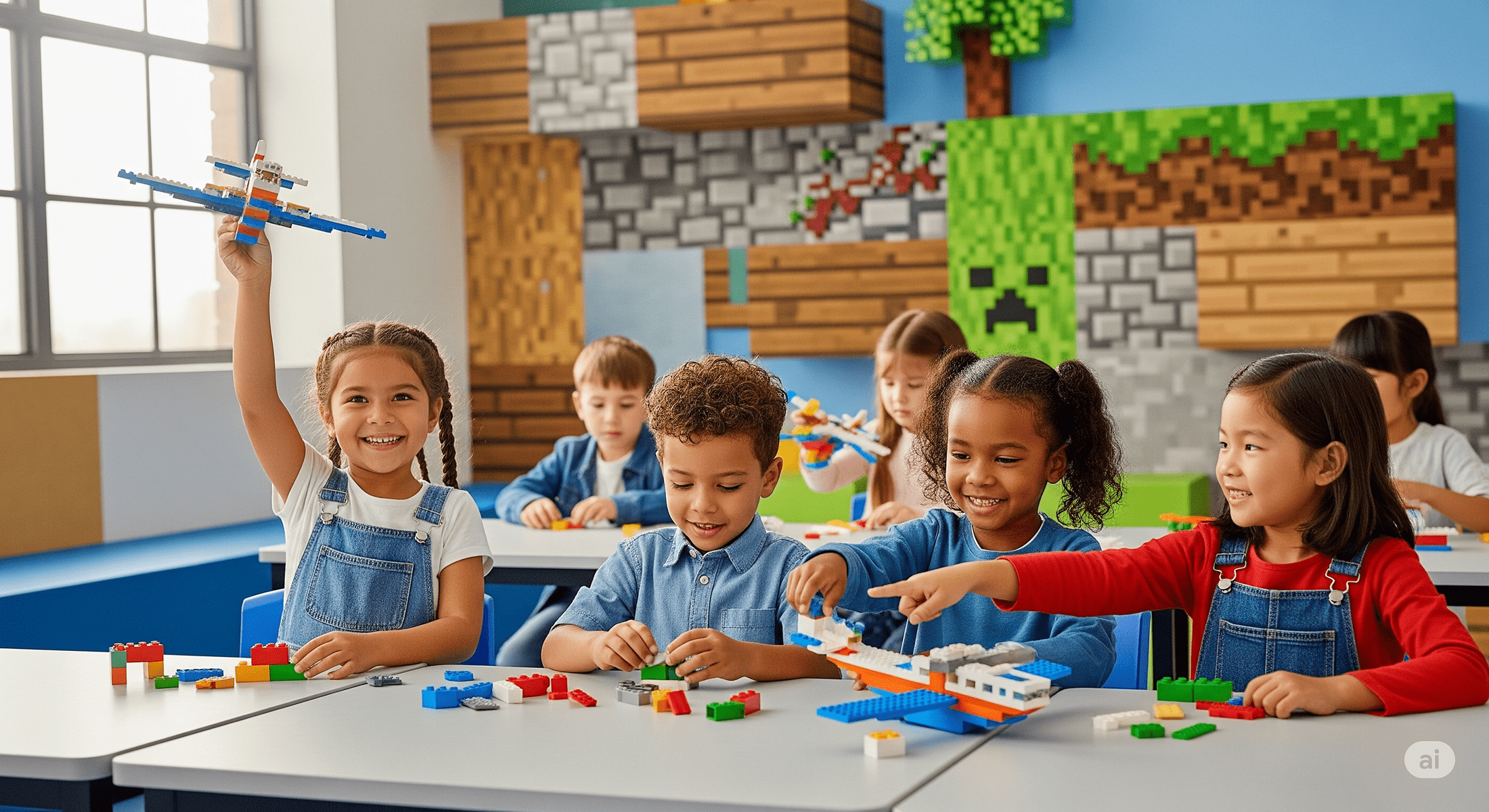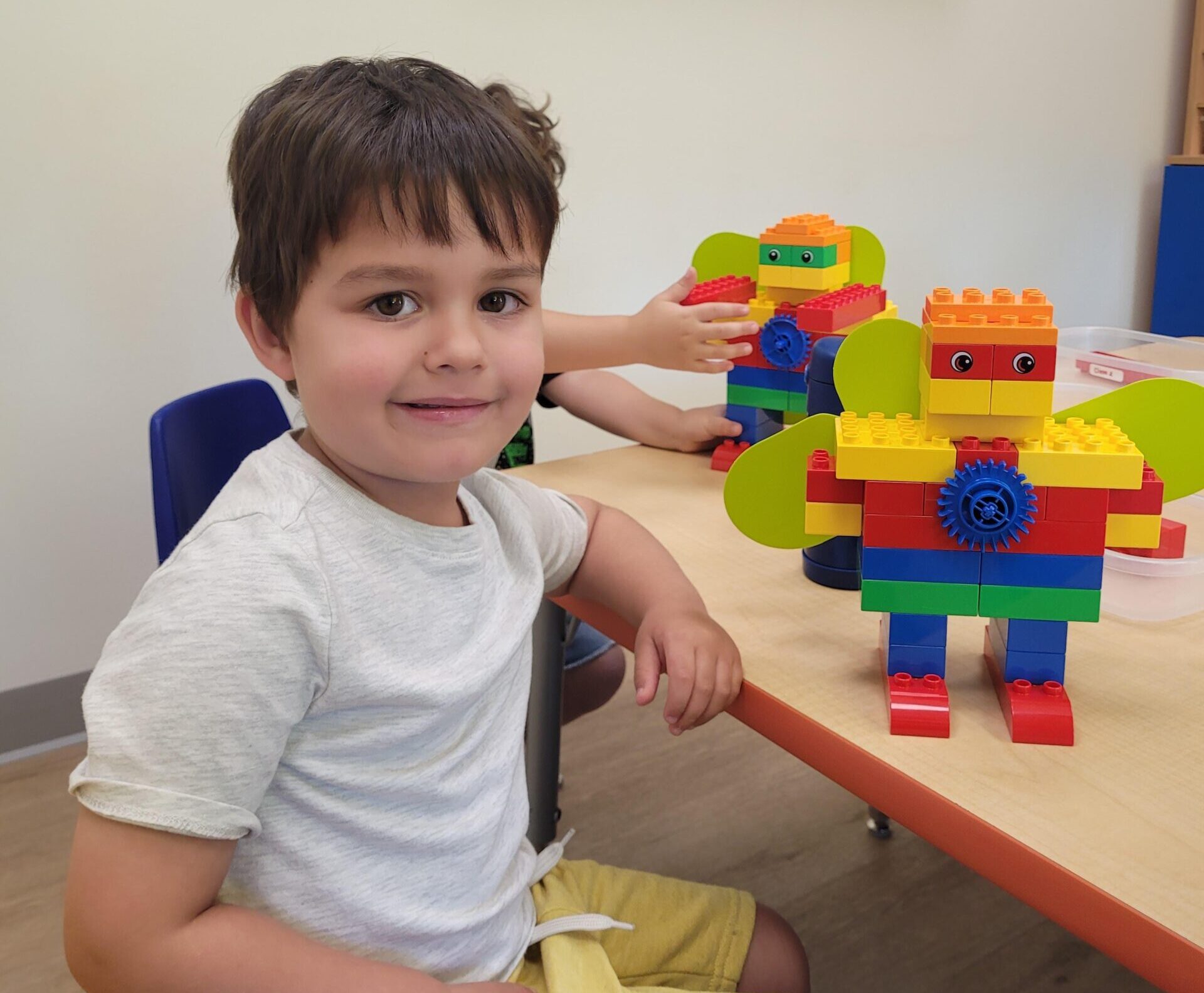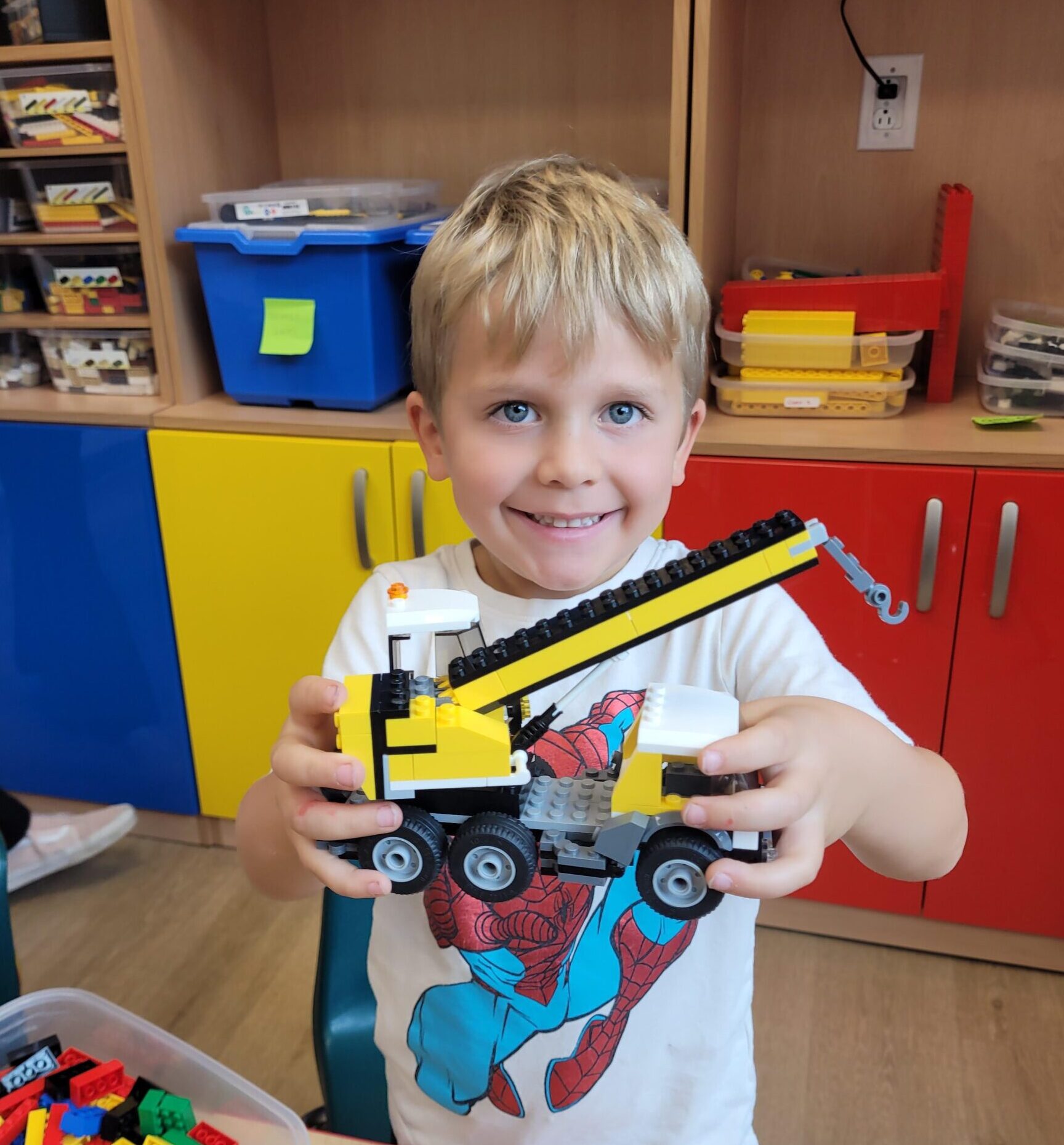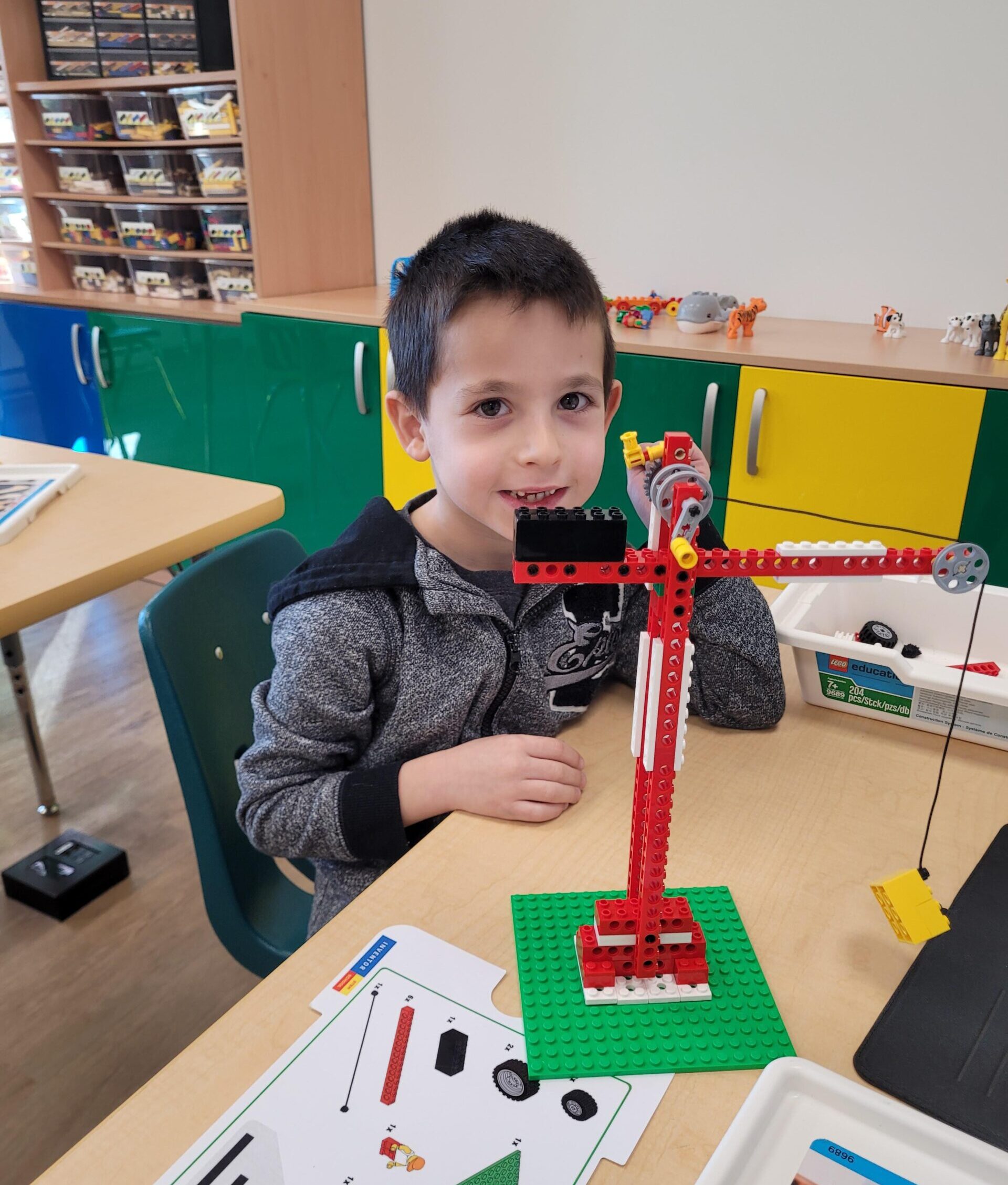
Weekend сlasses
for kids from 3 to 6 years old
Early development
Age group: 3 – 4.5 years old

What we study:
Designed for our youngest learners, this course introduces children to the joy of discovery. Using colorful LEGO® DUPLO® bricks, they build simple models of buildings, animals, vehicles, and fairy-tale characters.
What we achieve:
Through guided building and play, children develop fine motor skills, hand-eye coordination, communication, and social interaction. They also learn to recognize and describe colors, sizes, and shapes in the world around them.
A look into the class:
Each lesson is story-based and features engaging, animated presentations. For example, during a “zoo” lesson, children listen to a story, discuss animals they might see, and then build creatures like monkeys, crocodiles, or parrots with their teacher’s step-by-step guidance, encouraging active discussion throughout.
Science in your world
Age group: 4.5 – 5.5 years old

What we study:
For curious minds eager to understand their surroundings, this course uses standard LEGO® bricks to explore a new theme each class. Children discover different professions, cultures, architecture, and fascinating creatures like sea animals and dinosaurs.
What we achieve:
Children develop remarkable dexterity and hand-eye coordination as they handle and assemble numerous small LEGO® pieces of varying shapes, sizes, and colors. Along the way, they build problem-solving skills, logical thinking, creativity, and confidence, while learning to focus, follow instructions, and collaborate with peers—all through hands-on, playful exploration.
A look into the class:
Each week brings a new theme. For example, during a “Microscope” lesson, children learn about its history and purpose through a teacher-led presentation, then use iPads to follow step-by-step building instructions. Teachers guide the process, answer questions, and foster lively discussions.
Fun with engineering
Age group: 5 – 6 years old

What we study:
Designed for children familiar with LEGO®, this course explores building models with moving parts. Students discover technological achievements, from vehicles and spacecraft to innovative structures, while learning engineering basics through hands-on play.
What we achieve:
Children gain hands-on experience with engineering concepts, learning how parts move and work together to create functioning models. They develop precision and dexterity through handling small LEGO® pieces, while boosting problem-solving, critical thinking, creativity, and the confidence to tackle challenges independently.
A look into the class:
Each lesson begins with an animated presentation on a new topic. For example, in a “Cement Mixer” class, students learn how it works, its history, and the parts that create movement. Then, using step-by-step iPad instructions, they build independently while the teacher guides, answers questions, and encourages discussion.
Mechanics for beginners
Age group: 6 – 7 years old

What we study:
This course introduces children to core concepts of mechanics through building mechanical prototypes. Students explore everyday machines such as elevators and cranes, learning how different components work together to create motion.
What we achieve:
Children develop fine motor skills and precision while handling many small LEGO® pieces of different shapes, sizes, and colors. They learn the basics of motion, simple mechanisms, and transmission types (gears, levers, pulleys, cranks, and more). Through hands-on building and guided discussions, they strengthen problem-solving, critical thinking, creativity, teamwork, and confidence.
A look into the class:
Each week features a new theme. For example, during an “Elevator” class, students examine how it works, its history, and the key parts that enable movement. They not only build the model but also assemble the internal mechanisms that make it move. After building, they experiment with the mechanism—testing how changes affect its motion—and record their observations. Step-by-step iPad instructions guide the build, while the teacher provides support, answers questions, and encourages discussion and reflection.
